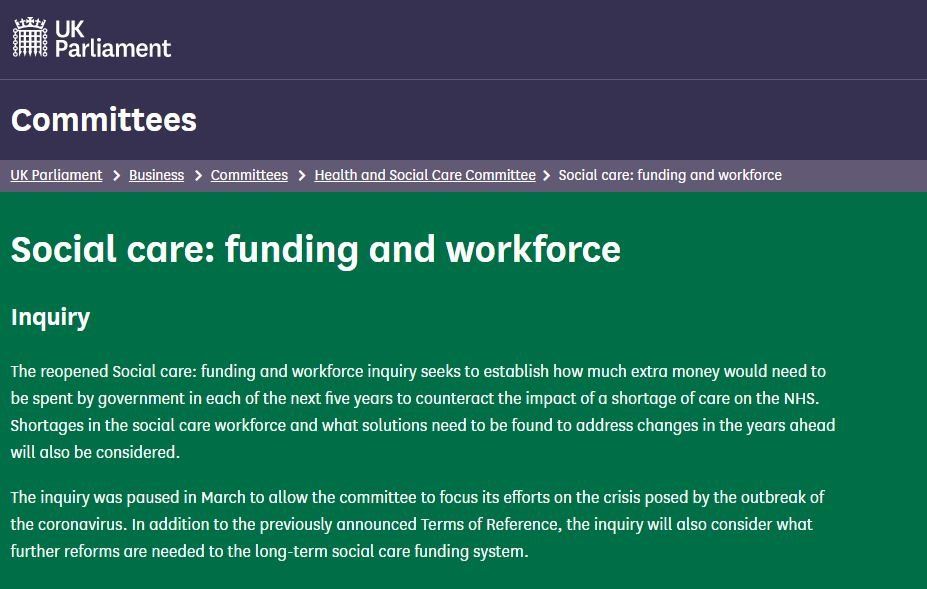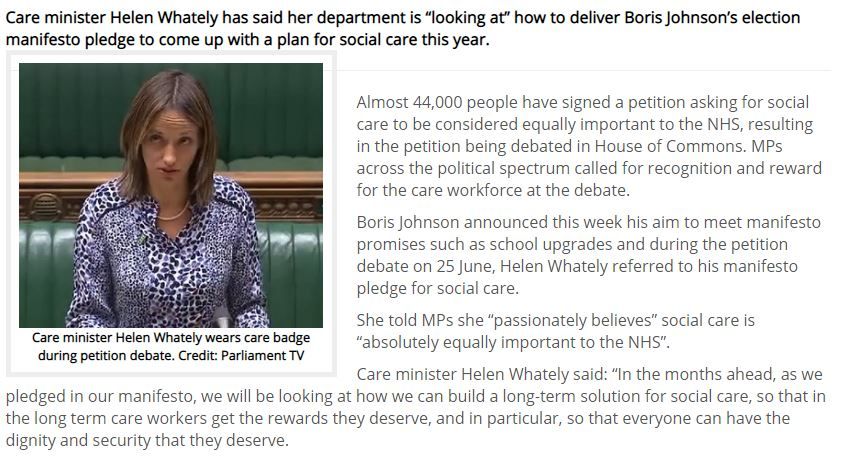You have clapped for care… we have chatted for care… the government has asked what is needed to save the social care sector and you have told us, now we must work together and #ActforCare.
We have already spoken to 400 care workers, made recommendations for government and successfully got our petition to be recognised in parliament – we now want to co-create an action plan for social care and make sure government knows about it!
If you have any experience with care at all – you can contribute in our free webinar, so see below!
This pandemic has shown the vital role care plays in society and the ways it is supports our health and well-being in crisis and beyond, let alone keeping pressure off our hospitals. But care is failing to support the community properly and the incredible people delivering care every day are not given the rewards, recognition or thanks they deserve.
The government has asked and been told exactly what it needs to do to save care from the crises causing threats to our whole sector and the pandemic has only made these more vital. These are:
- Pay
- Promotion opportunities
- More training
- Better safety
- Better connections across care, health and the community.
Your Free Webinar – Help us say what we want
We held a webinar on the 10th July, free and open to anyone with relevant experience, to tell us what we should include in our next steps. This may be an open letter describing what we as a group want to see happen, perhaps our own pay scale that reflects the NHS progression bands, or maybe a new set of training or new types of collaborative workshops for Autism or mental well-being, or it could be more dedicated webinars to focus recommendations in topic area.
You will help us decide,
CLICK HERE for the slides from post-submission Webinar 1.
And stay tuned here for details of upcoming webinars over the next few week.
Select Committee Inquiry and Our Response
This is a joint submission we made to the (Health and Social Care) Select Committee care workforce inquiry into supporting the care workforce. This will be a big part of how the government pays and supports to care workforce over the next few years and can be found here:
https://committees.parliament.uk/work/136/social-care-funding-and-workforce
Our survey was completed by 381 care workers with half in management, a third in support and senior roles and the rest in admin or policy. We then carried out webinars and direct interviews with a number of people across care to properly understand what would support us all the best, how we can improve public understanding of care and make care’s specific identity fair and recognised.
These findings resulted in 7 recommendations to improve the situation of the social care sector. Areas for improvement included better pay for employees, increased funding, improved training, diverse career pathways with appropriate equality training, leadership and development for BAME groups.
These are set out into 4 themes:
1) Pay, Funding and Rewards
2) Recruitment and Retention
3) Training and Career Pathways
4) Inequality, Diversity and Care.
The government should ensure the same protection and development as the NHS as for the social care sector whilst protecting the person-centred, relationship based specific identity of social care. Our recommendations obligate the government’s responsibility to reflect and prioritise the value of care work by development of the sector as a whole and adequate conditions and pay for the workforce.
Our Petition – cited in parliament by cabinet minister care
Parliamentarians in the House of Commons on Thursday 25th June 2020 held a debate on the recognition and reward of health and social care workers.
This was following multiple online petitions on the subject. This included Sophie Chester-Glyn’s petition ‘We would like the government to consider social care as equally important to the NHS’.
This debate acknowledged the universal need for valuing the social care work force with increased, long-term funding solutions. Labour MP Catherine Mckinnell stated that clapping for workers is insufficient for the recognition and appreciation for the skills of the workforce.
It was echoed by several Labour backbenchers that increased staff pay and addressing the negligence of the care system is a practical response to support and improve the conditions of care workers.
Privacy | Sitemap | Contact us | Login
CoProduce Care Ltd. All rights reserved.





